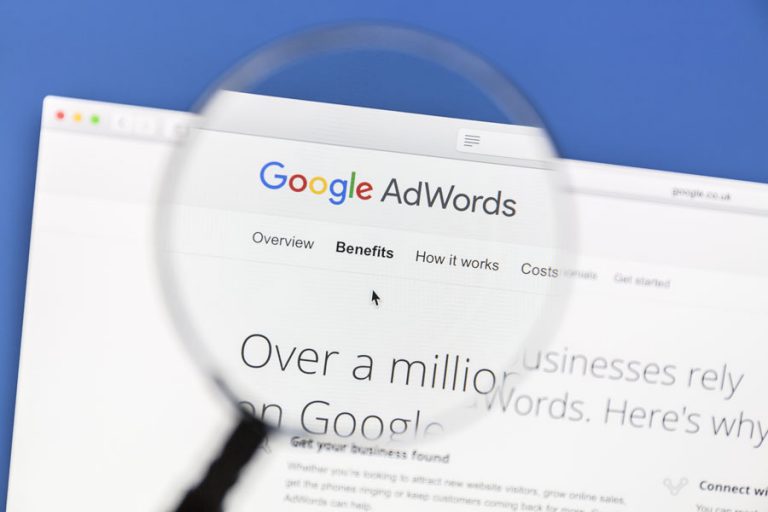Reaching the top of search results through organic methods can take months before it yields significant results. If your objectives are to boost your online visibility, drive high-quality traffic, generate leads and increase conversions within a strict timeline, pay per click (PPC) marketing can help you accomplish all those things.
But before you can reap the benefits of PPC marketing, you need to understand how it works and the best way to optimise your ads so you attract your ideal audience while fully utilising your budget.
In this article, we help you expand your knowledge on PPC and how to set up high-performing PPC campaigns.
What is PPC?
Pay per click advertising is a tactic where businesses set up an ad online and then pay each time a user clicks on the ad. There is no cost to placing the ad. You only pay when users engage with it.
If SEO is a type of inbound marketing, PPC is a type of push or interruption marketing. In other words, you directly sell your products or services to your target audience. Think of it as the Internet’s own version of a TV commercial. You have a limited time, space and copy to communicate your brand message and effectively sell your products and services.
PPC marketing can be broken down into three major categories:
- Search advertising – Text-based ads that appear as search results on the Google Search Network
- Display advertising – Ads that appear as graphics, paid posts or videos found typically on third-party websites and social media feeds
- Retargeting – When people go online to buy an item, most do their research first and compare prices, especially for expensive products. Retargeting ads are an excellent way to remind past visitors of your site to go back and purchase from you.
Currently, the most popular platform for PPC marketing is Google Ads. This doesn’t come as a surprise as Google leads the world’s search engine market with a share of a whopping 91.38%. Until now, a huge majority of online users, including those in the UK, continue to search on Google for information about products and services. It’s the most profitable place to put up paid search ads.
How Does PPC Work?
To determine the most relevant ads to show to searchers, PPC channels have a meticulous auction process. Depending on the channel and ad type, this auction takes into consideration how much an advertiser bids, the quality of the ad, the ad’s relevance to a specific search term or query and various other factors.
PPC marketing also involves bidding on keywords. Keywords are terms and phrases that online users type into Google. PPC marketers and advertisers conduct thorough keyword research so they can decide on the search terms they want to appear for. The best keywords are those you believe your target audience uses when searching for information about your products, services or brand.
Here is a standard process of how most digital marketing companies carry out PPC advertising:
Competitive Gap Analysis
Every PPC campaign starts with a thorough assessment of your target audience, revenue goals and the performance of your competition. These data provide deeper insight into your bidding strategy and how to maximise your ad spend budget.
Keyword Research and Bidding
Keyword research is the cornerstone of a successful PPC campaign. Conducting ample keyword research will let you bid on search terms that secure your ad placement at the top of search results. It also enables you to zone in on search terms most likely to result in clicks and conversions.
Ad Copy Creation
Once you’ve finalised your keywords, you have to create your ads. This entails expert copywriting skills so ads can highlight your unique selling proposition. Top it off with a compelling CTA that entices them to click.
Landing Page Optimisation
The traffic you funnel through your PPC ad needs somewhere to go. Create an optimised landing page that meets the interest, intent and needs of your target audience. This improves your ad quality score as well.
Ad Retargeting
Every single person who clicks on your ad isn’t always ready to buy from you. Sometimes, they need a little more convincing. That’s where ad retargeting comes into play. You can position your ads strategically in front of past visitors when they jump to other sites. That way, you can remind them about your brand or products and drive them further down the PPC marketing funnel.
Factors that Affect PPC Ranking
Now that you know how PPC works, how exactly can you ensure that your ads show at the top of Google search results? Take note of these important Ad Rank factors:
Your bid – Once you set your bid on Google Ads, you’re basically telling the platform the amount you will pay each time someone clicks on your ad. The amount you actually end up paying is often less. You can also change your bid any time.
The quality of your ads and landing page – Google Ads assesses how useful and relevant your ad and landing page are to the person who will see it. The measurement of your ad’s quality is summarized in your Quality Score, which you can improve on and monitor in your Google Ads account.
Ad Rank thresholds – Google sets minimum thresholds for ads to achieve. These help ensure that only high quality ads are shown.
The competitiveness of an auction – if two ads with similar ad ranks are competing for the same position, they will both have an opportunity to win that position. As the gap will inevitably widen, the higher-ranking ad is more likely to win. However, it may pay a higher cost per click to ensure the increased certainty of winning the auction.
A person’s search context – Context matters in the ad auction. When Ad Rank is calculated, Google looks at the search terms a user has entered, the type of device they’re using (e.g. desktop or mobile), the location of the search, the nature of the search terms, the time of the search and other user attributes and signals.
The impact from your ad extensions – During ad creation, you have the option to add other details such as a phone number of links to specific pages on your site. Google estimates how these ad extensions will impact the performance of your ad.
Why Do Businesses Need PPC?
You already have an SEO strategy all planned out. You may be wondering: why venture into PPC marketing at all?
Organic search may reign supreme in non-interruptive marketing but paid search can be a pillar of success in your overall digital marketing strategy.
Here are some of the benefits that you can reap with a solid PPC marketing campaign.
- Boost brand awareness – Paid search ads are the first things users see on the first page of search results. That means top position rankings will translate to more exposure for your website. This makes PPC ads ideal if you want to main top-of-mind awareness while generating qualified traffic.
- Create targeted ads – PPC advertising lets you reach target customers based on location, time and device settings for maximum impact. That means you can place your ads directly in front of the people most likely to buy from your business.
- Reduce overall ad spend – Just like the name implies, PPC ads only charge you when a person actually clicks on the ad. Even if you capture thousands of impressions (therefore boosting brand exposure), you remain top of mind and receive future recognition for free unless someone visits your page.
- Get instant, measurable results – Waiting for your website to rank on the top positions of search results can take months. PPC marketing provides instant results as you can drive conversions the moment your ads are up and running.
PPC marketing operates on an entirely different ball game than SEO. In fact, they’re a crucial conversion driver as they’re linked to landing pages that are crafted to convert in a way that organic results aren’t. Additionally, visitors that come from PPC ads often already have high purchase intent. If you play cards right, you can drive high-quality traffic while reducing ad spend.




